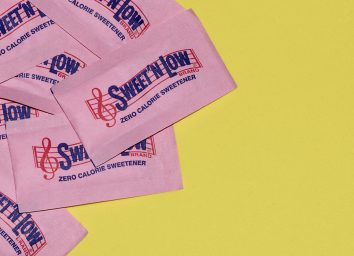Foods That Can Decrease Your Diabetes Risk, Says Dietitian
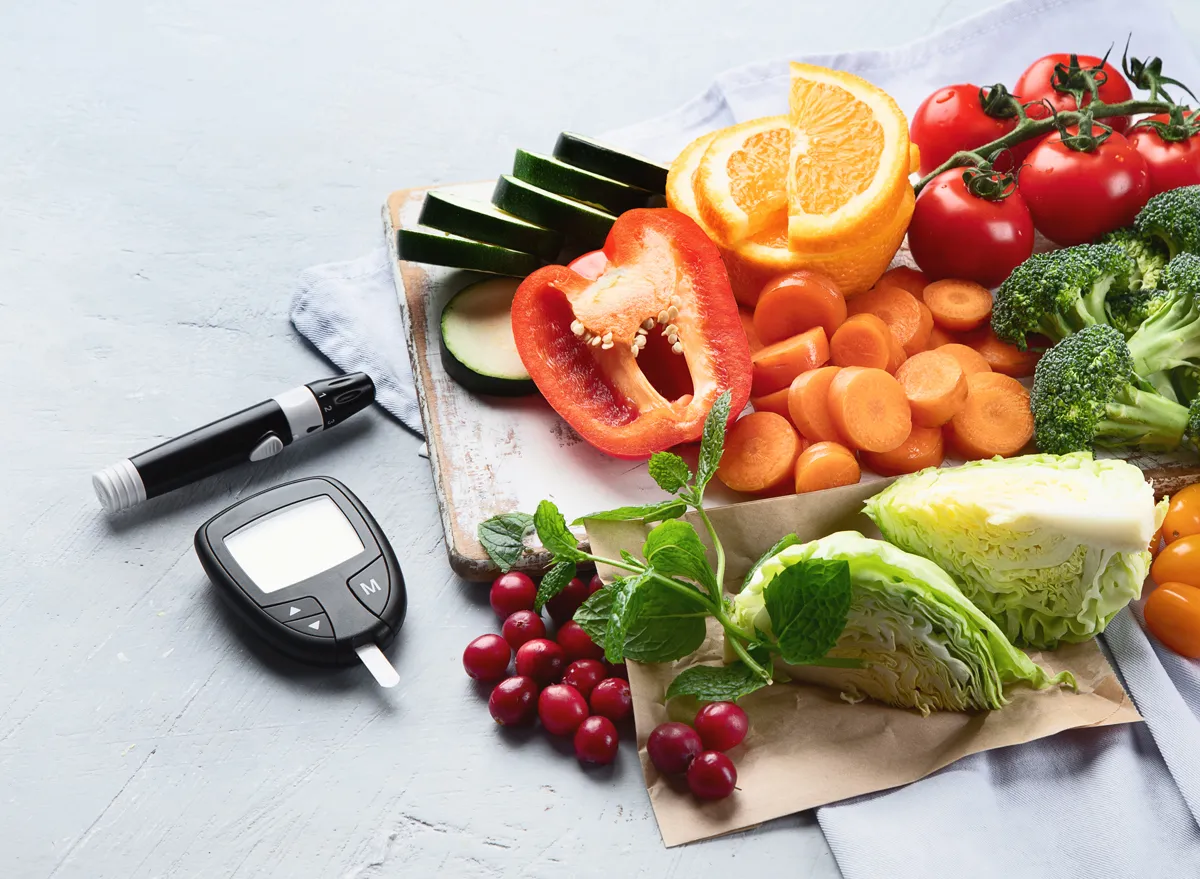
More than 34 million Americans have diabetes, with an overwhelming majority (an estimated 90 to 95%) specifically having type 2 diabetes—aka the kind that’s largely preventable.
When someone says they have type 2 diabetes, it means that their body doesn’t properly utilize insulin, an important hormone that’s produced by the pancreas and regulates how much glucose (sugar) is in your bloodstream. Insulin allows cells to use glucose for energy right away or stored in your muscles, liver, or fat tissue for later use so that it doesn’t hang out in the bloodstream and potentially harm the body.
However, someone with type 2 diabetes is also insulin resistant, meaning their cells no longer respond to insulin and therefore don’t participate in glucose uptake as efficiently as they once did. As a result, the pancreas goes into overdrive and begins to pump out more insulin until it eventually reaches a point where it can no longer keep up.
Since type 2 diabetes is most commonly believed to develop as a result of unhealthy eating habits and lack of exercise, Lauren Hubert MS, RD shares three types of foods you should always eat in an effort to avoid type 2 diabetes. Then, be sure to check out 100 Easiest Recipes You Can Make for simple ways you can incorporate these foods into your diet!
Whole grains
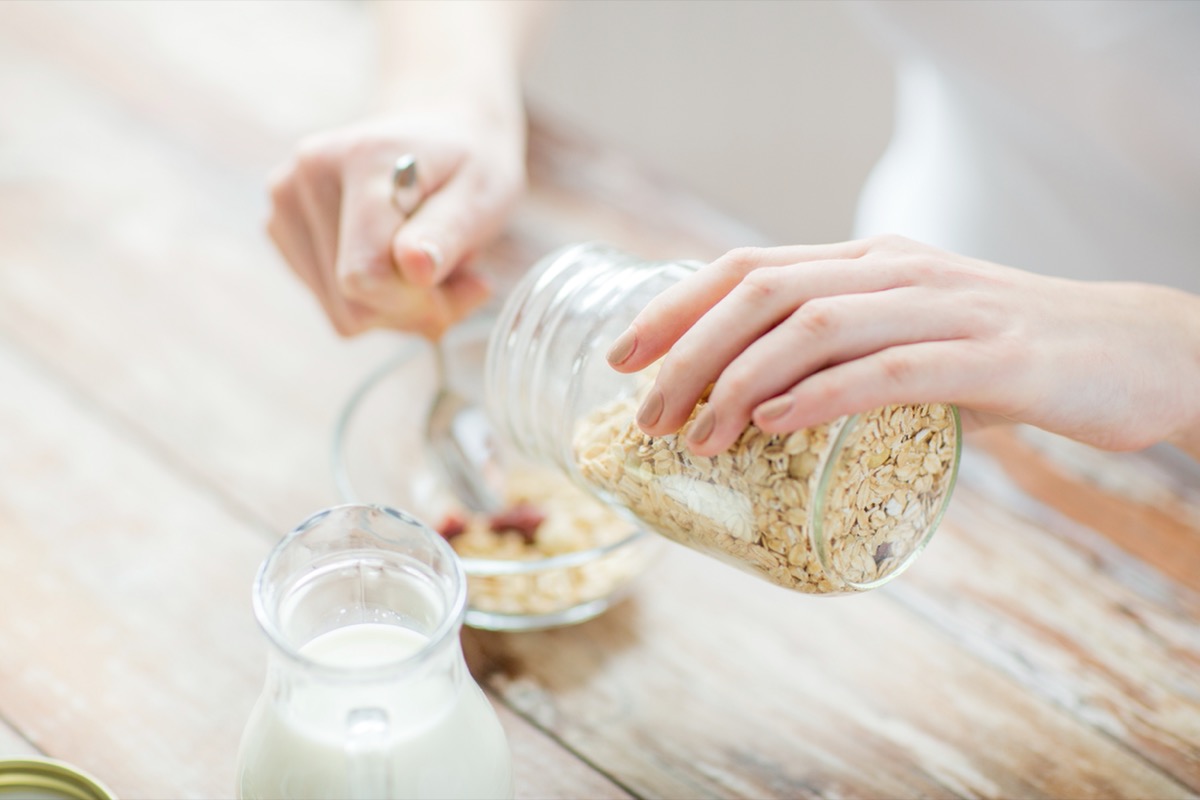
While carbs often mistakenly get a “bad reputation” with regard to both diabetes and weight management, Hubert points out that whole grains like wheat, rye, and quinoa are a few options you should consider consuming more of—especially if you’re trying to reduce your risk of type 2 diabetes.
“This is because whole grains are different than more processed and refined carbohydrates as their entire grain is intact, meaning all the fiber and nutrients are still within it undisturbed,” she says. “A diet higher in fiber means you’ll stay fuller for longer and won’t spike your blood sugar as high as eating highly refined carbohydrates, which reduces your risk for type 2 diabetes.”
Examples of highly refined carbs include white flour, white bread, and pastries such as cupcakes and cookies. Instead, focus on these 9 Best Complex Carbs.
Berries
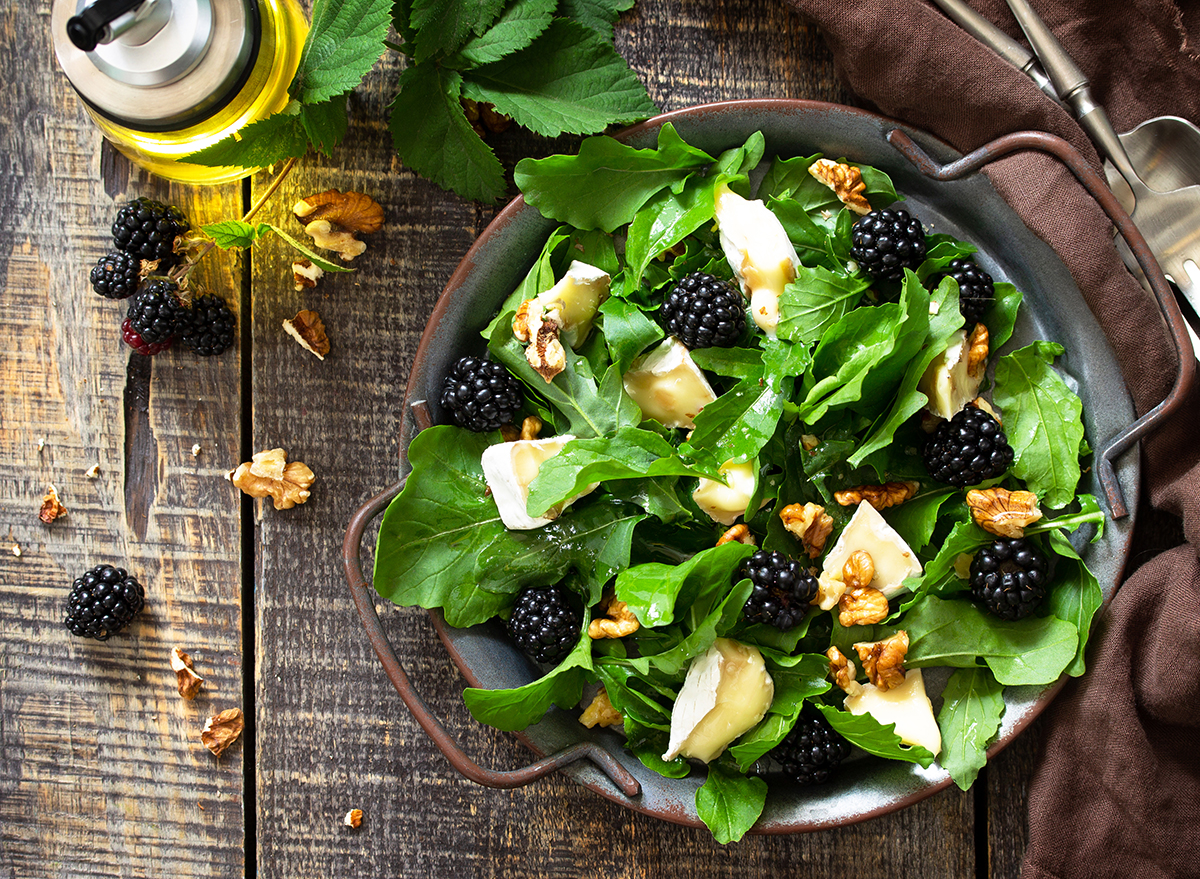
Eating a diet that’s full of fresh (or frozen) fruits and vegetables can help you keep your weight and blood sugar levels in check, which Hubert says is largely attributable to their low-calorie and high-fiber contents. Additionally, fruits and vegetables have high nutrient profiles, meaning you get a lot of key vitamins and minerals per serving. However, berries are especially important to eat when you’re trying to stave off type 2 diabetes.
“Berries, such as blueberries, strawberries, and blackberries, are incredibly healthful foods you want to consider eating to reduce your risk of developing the condition. This is because berries are a rich source of several nutrients and phytochemicals and have been shown to improve insulin resistance in overweight and obese adults as compared to other carbohydrates,” says Hubert, adding that this diet change can help you reverse prediabetes, the stage before type 2 diabetes.
Here’s One Major Effect of Eating Strawberries, Says Science.
Soy-based foods
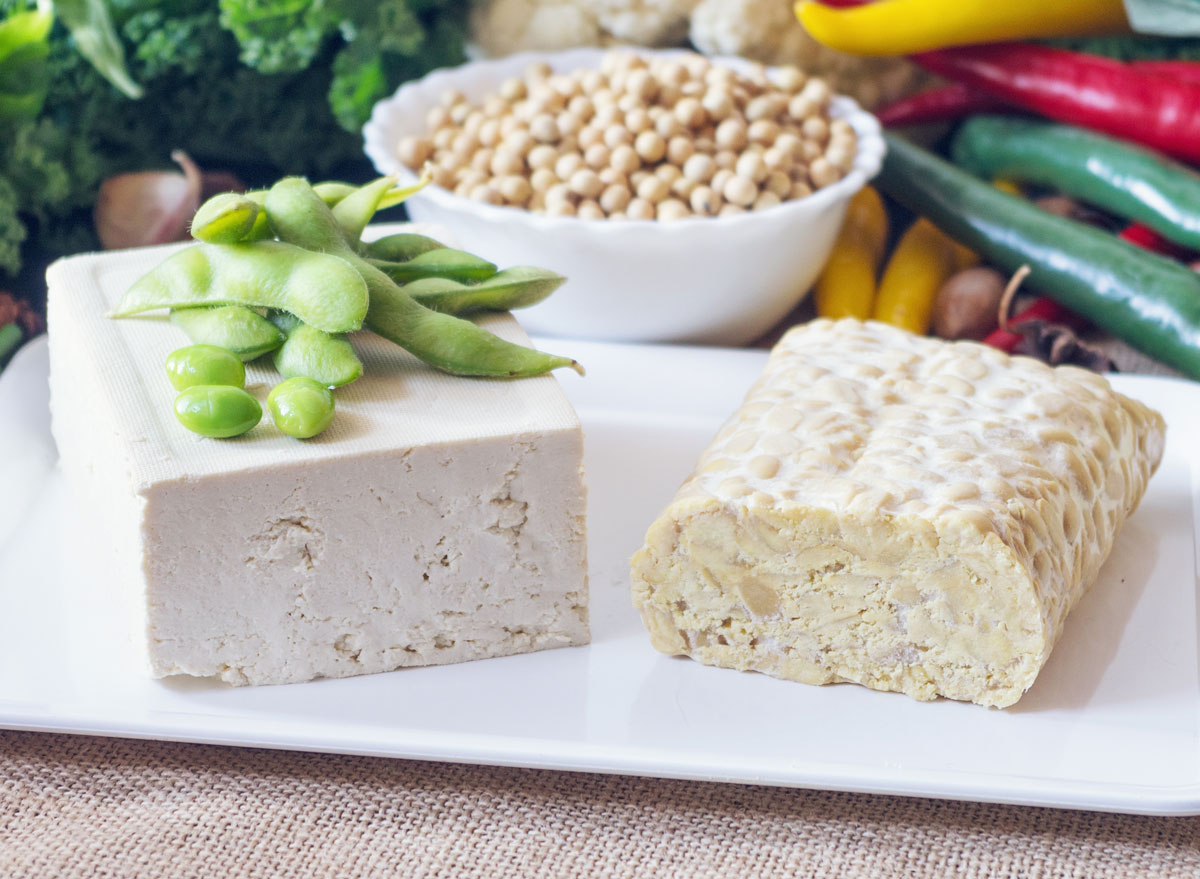
“It is known that a higher intake of animal proteins, such as red and processed meats such as sausages and steak, are associated with the development of type 2 diabetes,” Hubert says. “The problem is, protein is incredibly important for staying full between meals to prevent overeating and weight gain. This is why emphasizing more plant-based proteins has been well-studied in diabetes research.”
Instead of reaching for the prosciutto or cured salami every Wednesday, try opting for a soy-based protein, such as tofu or a meat alternative like Soy Chorizo. This way, you’ll still receive adequate protein without all of the saturated fat and nitrates.
And now . . . be sure to avoid these foods.
Processed foods
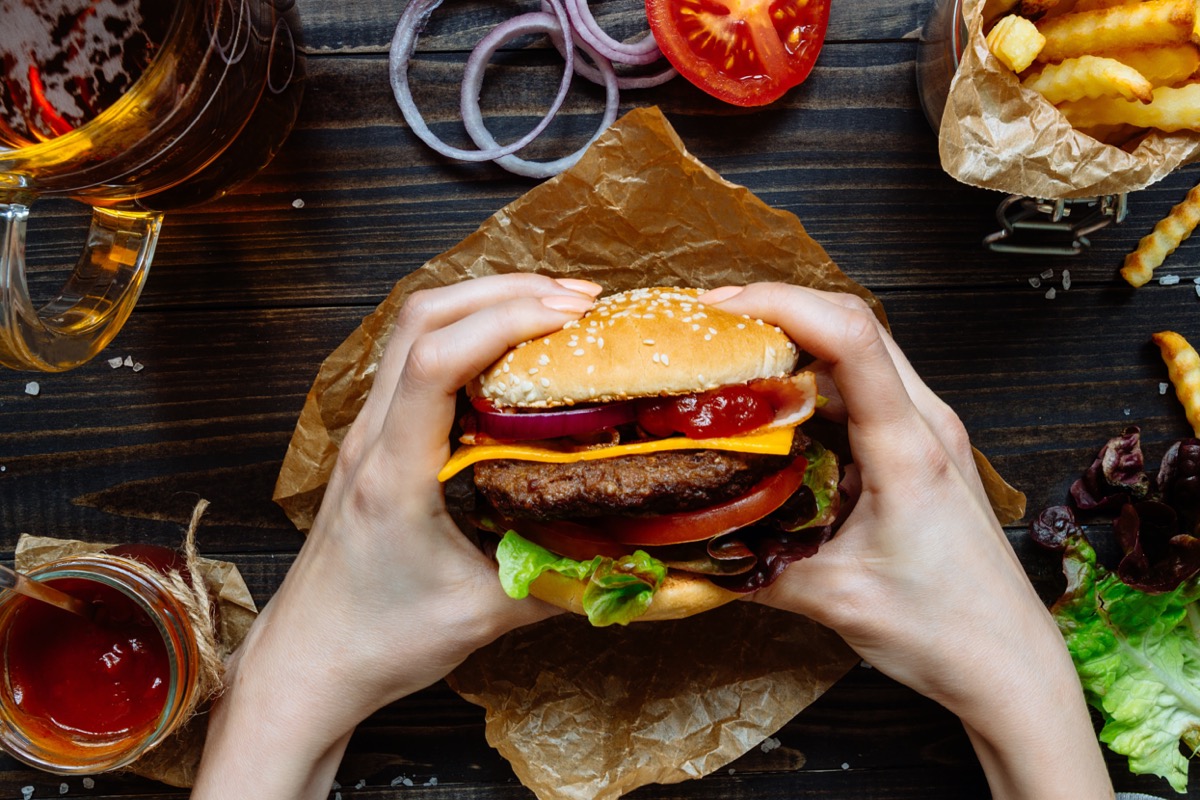
Eating fast food and other prepared or packaged meals and snacks that contain abnormally high saturated fat and added sugar contents have been associated with obesity and even heart disease. A recent study suggests that eating heavily processed foods can increase your risk of certain chronic diseases, which include type 2 diabetes.
The researchers suggest that these junk foods reduce the healthy gut bacteria that help your body not only fend off harmful bacteria that could make you sick immediately. These types of foods also alter gut microbiota in such a way that makes you more susceptible to inflammatory diseases later down the road.
Bottom line: It’s important to limit your consumption of processed foods—whether it be refined grains, cured meats, or fast food for a number of reasons—especially if you have prediabetes. In their place, be sure to eat plenty of fresh fruits and vegetables, as well as whole grains, to reduce your risk of type 2 diabetes.
For more, check out the 4 Biggest Food Studies About Diabetes You Should Know.

